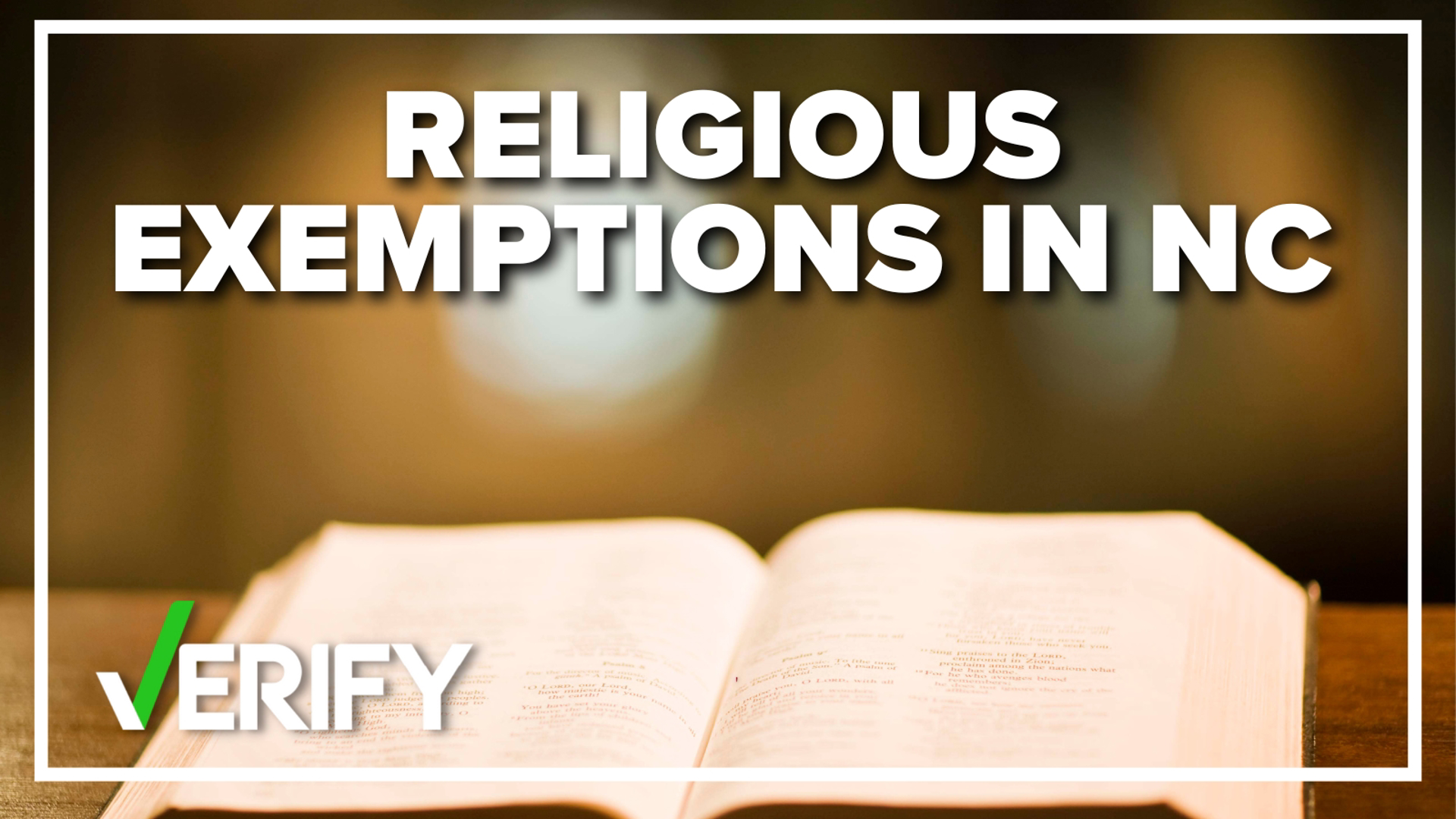CHARLOTTE, N.C. — A Charlotte restaurant is facing a federal lawsuit after its general manager is accused of trying to make an employee work on Sundays, despite religious accommodations allowed under federal law.
So what are the laws when it comes to religious exemptions in North Carolina?
WCNC's Meghan Bragg spoke with several lawyers about religious exemptions, and it's not a “one-size fits all” situation, it’s really a case-by-case basis.
Some exemptions are easier to accommodate than others, and the law acts to protect people’s religious beliefs, but it also works to protect employers.
THE SOURCES
WHAT WE FOUND
According to The U.S. Equal Employment Opportunity Commission, or EEOC, Title VII of the civil rights act made religious exemptions possible in the United States.
It’s a code employers need to follow, which prohibits them from discriminating against people because of their religion in hiring, firing, or other terms and conditions of employment.
Under the act, flexible scheduling, voluntary substitution or swaps, job reassignment, and trades are all examples of accommodating an employee’s religious beliefs.
However, Mauney said the act also looks at whether an exemption that’s being requested would pose an undue hardship on the employer.
A religious head-covering, for example, probably wouldn’t create an undue hardship.
"So a yarmulke, easy enough," Mauney said. "If not working Sundays is something that the employer can accommodate without facing an undue burden."
To establish undue hardship under the guidelines, Mauney said the employer must demonstrate that the accommodation would require the employer to bear more than a minimal cost.
So what happens in these cases is what a lawyer would call fact-specific, meaning what may constitute an undue burden in one situation may not apply in another sort of similar but not quite the same situation.
In an email, employment attorney Michelle Gessner said there is a relevant case currently before the supreme court.
Groff v Dejoy raises the issue of how great a burden an employer must bear in order to accommodate religious exemptions.
She said this could help determine other cases when it comes to religious exemptions.
Contact Meghan Bragg at mbragg@wcnc.com and follow her on Facebook, Twitter and Instagram.
MORE VERIFY STORIES
VERIFY is dedicated to helping the public distinguish between true and false information. The VERIFY team, with help from questions submitted by the audience, tracks the spread of stories or claims that need clarification or correction. Have something you want VERIFIED? Text us at 704-329-3600 or visit VERIFY.

